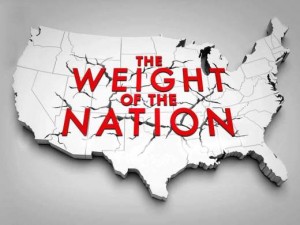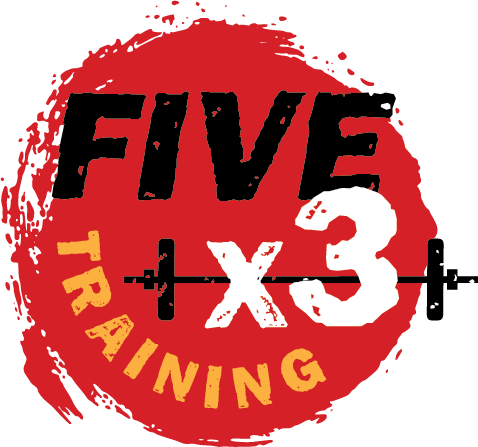 We’re in a situation now where weight and extreme weight and heart disease is the biggest killer in this country today.
We’re in a situation now where weight and extreme weight and heart disease is the biggest killer in this country today.
Jamie Oliver
FACT: In the United States in 2010, over 63% of people are overweight or obese.
I have a secret. I am addicted….to the salad bar at Whole Foods. If you gave me a choice between a salad filled with beets, mushrooms, spinach, cabbage, tofu and chicken and a brownie, I would choose the salad. Laugh if you want, but I do not joke. I LOVE vegetables. I crave vegetables. I shove fruit, chicken, fish and beef down my throat any chance I get. I love a fresh whole grain roll. About two months ago, I started documenting my meals with the idea of putting together a post about my dietary habits. I was having trouble finding the time to sit down and type so I started putting the pictures up on my Facebook page. Immediately, I got positive feedback about the pictures and realized that this was something very important to my fans. Now that I have a little more downtime, I can finally work on the post. Yet, once I sat down to write about my pictures and talk about my food choices, I realized that this post was quickly turning into more of a “why are we getting fatter as a nation.” I am glad as this is a subject of great concern for many of us.
FACT: 79 million Americans are prediabetic.
If that number doesn’t scare you, it should. My husband and I are currently watching HBO’s four part documentary, “Weight of the Nation.” We have watched the first three parts of the series already and frankly, it angers me and scares me to death. Because while it is informative and eye-opening, I am very concerned that it will never reach the people who really need to see it the most….the overweight and the obese, the same people who are being profiled. Its intent is good. The message is loud and clear. But the information in the program is nothing new to me. I am already immersed in this world. I am already that informed individual. I listen to NPR. I shop at Whole Foods as well as my local grocery store. I head to the Farmer’s Market every Sunday morning for my asparagus and strawberries, my fresh peas and portabello mushrooms. I would like to believe I make good food choices. I eat a variety of fruits and vegetables, lean meats, fresh bread, eggs, homemade granola. Over the past few years, I created better food habits which have led me to a healthier, happier and stronger me. No, I was never overweight but I certainly did not eat as well as I should have and it showed in my body and on my face. I was unhappy with the way I looked and felt much of the time. I listened to the low-fat, no-fat gurus. I thought butter was evil and margarine was good. I thought soy cheese was the answer to still having my cheese and losing weight. I ate very little protein and a lot of processed carbohydrates. Though because they were touted as “low-fat” I thought it was okay to eat them. And I exercised like crazy to make up for the food I did eat. Now, after re-educating myself and taking the time to really get to know food and understand what my body needs to be healthy, I know how really wrong I was.
Today, I do not use margarine. I use butter. There is nothing low fat or fat free in my cabinets. Nothing I eat comes out of a box. I have discovered that REAL food is the super hero and fake food is the enemy. But it was not easy. It took discipline. It took time. It took patience. I had to make choices every day. I had to find alternatives to foods I was used to eating. I had to learn to develop better eating habits. Eating when hungry. Eating breakfast. Eating more protein. Drinking more water. Cutting out sugar, mainly my candy addiction–I used to be able to put away a whole box of Mike and Ikes in one sitting. Eating more slowly. These better habits led to a better lifestyle and a better relationship with food.
FACT: The obese workforce costs American business an estimated $73.1 billion per year.
However, this is not as easy as it seems. Old habits are hard to break. This is the problem that the obese and overweight population face each and every day. They have eaten their way to obesity and now they want and need to lose the weight. But they don’t know how. They are confused, ashamed and angry. With themselves. With the food industry. “What do I need to do to lose weight?” they ask. Unfortunately, re-programming our brains is not that easy. But it isn’t impossible. Those interviewed in the documentary talked of all the diets they had tried but ultimately still failed to lose the weight. Or they would lose the weight and then gain it all back and more. And herein lies the problem. The word “diet.” You hear it over and over again. “I need to lose 10 pounds so I have decided to try the ___________ diet.” Everyone tries to diet their way to a thinner version of themselves. The only problem is that diets don’t work. They may work for a while, but unfortunately they often lead to long-term weight gain because they do not create better eating habits. They restrict you from eating certain foods. Yes, if you only eat tuna and lettuce for two weeks, you will lose weight. But once you start eating again, what happens? You gain it back….and more. Those 10 pounds now became 20. You did not develop better habits. You simply restricted yourself for a time and the body came back more angry than changed. Instead of thinking of short-term goals, we need to start thinking of long-term health. We need to start thinking of lifestyle changes around eating. Habits, not diets. The sad thing is that the diet industry does not want you to create lifestyle changes because there is no money in changing people’s attitudes toward food. Diet books sell. “Learn-how-to-eat-better-eat-less-and-move-more” does not sell. 🙁
FACT: Sweetened soft drinks […] contribute about 10 percent of the calories in the American diet.
Yet, if we are going to make any significant impact in the obesity epidemic, we need to help people start focusing on changing their behavior toward eating and food, not dieting. We need to help them ask themselves why they eat. Why they need it. How they eat. What they eat. Not every behavior or habit will work for everyone. For some, it may be learning techniques to help them visualize the food as they are eating. Learning how to take their time while they eat. Learning when they are hungry and when they are eating just because. For others, it may be joining a weight loss clinic and documenting everything they eat. There are many who do not believe in counting calories. “Just eat well and you won’t need to keep track.” Sorry, I don’t believe that for one minute. I have seen too many overweight organic-food-eating vegans. Keeping track of what you eat and drink will help you develop better awareness of your food habits. There is nothing wrong with keeping a food log, learning about the caloric content of food and measuring your portions. Portion sizes are beyond out of control. Measuring and recording your intake can go a long way toward repairing your damaged perception of what a serving looks like. Believe me, it is smaller than you think. If you are a flavored coffee, soda or juice drinker, recording might help you realize just how many of your daily calories come from sugary liquids. If you need to lose weight, you can live without orange juice. You don’t need to drink vitamin water or Gatorade. And those smoothies in the bottle? Sugar, sugar and more sugar.
FACT: The percentage of children aged 6-11 years in the United States who were obese increased from 7% in 1980 to nearly 20% in 2008.
We have to face the fact that we are a fat nation. And we are getting fatter every day. Worse yet, our children are getting fatter. School lunches aside, food education needs to start in the home. Soda does not belong in a child’s diet. Neither does juice in great quantities. A little apple juice won’t hurt them every now and then, but there is no need for it to be a staple in their diet or for them to have free access to it as often as they like. Once again, so it sinks in, sugar is sugar. Fruit roll ups, pop tarts, sugary cereal, anything with high fructose corn syrup in the ingredients does not belong in a child’s diet nor does it belong in a grown adult’s. Eat like a grown up and your children will eat like one too. They need the same vitamins and minerals as you do. Kids will grow up loving broccoli, brussel sprouts and carrots if parents love broccoli, brussel sprouts and carrots. Is it really any more time consuming to cut up some broccoli and steam it in the microwave than it is throw some tater tots in the oven? I believe it actually takes longer to bake the tater tots. Make the time. Insist that your children eat their vegetables and fruits whole. No juicing. Do they really need to drink their fruit? Educate yourself as a parent as to what is a healthy food choice and what is not. Remember that you are responsible for what they eat, where they eat and when they eat. Make a big deal about the meals with vegetables and whole grains. Help them learn to love food that will help them lead long, healthy lives.
FACT: Exercise is a component of losing weight, but often dieters who exercise think they can eat more. However, running one mile — spending perhaps 100 calories — is the equivalent of a medium cookie.
The message in the documentary is simple. It is not about the latest gadget and the newest diet or diet pill. There are no quick fixes for weight gain. If you want to lose weight, you have to make healthier food choices, control your portion sizes and move more. You have to educate yourself about the food industry and start to think long term about your health. You have to stop looking at exercise as the only key to fat loss. It is only part of the picture. You SHOULD NOT be exercising to lose weight. There, I said it. As a fitness professional, you would expect me to tell you the exact opposite. That exercise is the gateway to weight loss. Unfortunately, I would be doing you a disservice. Healthy eating is number one. You SHOULD be exercising to 1. Feel better 2. Get stronger 3. Do more in your daily life. 4. Live longer. Better eating habits along with regular exercise will help you maintain a healthy weight. The two go hand in hand to keep you on track to a better, stronger, happier you.
If you are interested in learning more about HBO’s documentary, “Weight of the Nation,” check it out here and here. Be that informed individual and start educating yourself–and perhaps someone you know–on this very important subject.



